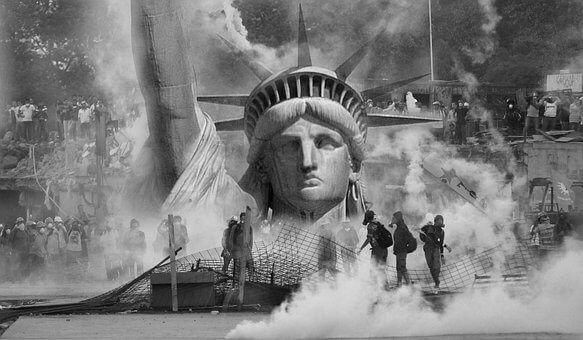A researcher from The Pennsylvania State University published a commentary in the Journal of Public Policy and Marketing that examines four key contemporary “drivers” of political violence in the United States: “toxic” political polarization; “toxic” identity-based ideologies; assaults on democratic norms; and disinformation and conspiracy theories. The article also discusses some ideas about how to curb the influence of these drivers and reduce political violence.
The study is titled “Drivers of Political Violence in the United States” and is authored by James A. Piazza.
Political violence in the United States is fast becoming a key concern for experts, policymakers, and the public in the wake of the January 6, 2021, assault on the U.S. Capitol. Public opinion surveys show that nearly one third of Americans believe the use of political violence to be acceptable and a plurality of surveyed Americans express concern that widespread violent civil conflict is a real possibility in the future. What explains the growing acceptability, and potential occurrence, of political violence in U.S. political life?
The article proposes that there are four potential social phenomena, or “drivers,” that contribute to political violence in America today. It also examines the social science research that links each of these drivers to political violence.
The first is “toxic” political polarization. The supporters of the two U.S. political parties have become hostile, warring camps that have strong aversion toward one another. This level of extreme political polarization has been found by scholars to increase both support for political violence and the actual occurrence of political violence in the United States and in other democracies globally.
The second, “toxic” identity-based ideologies, involves the mainstreaming of formerly extremist political ideologies such as white nationalism and Christian nationalism. These ideologies are associated with increased acceptance of the use of political violence.
Third, liberal democratic norms, and the institutions that are based upon them, are being eroded in the United States. These norms and institutions are crucial for channeling grievances into legal, nonviolent democratic behaviors. As they weaken, political violence moves into the mainstream.
Finally, the U.S. information ecosystem, particularly social media, facilitates the dissemination of disinformation and conspiracy theories. Researchers have found that both disinformation and conspiratorial mindsets contribute to increased political violence and tolerance of political violence in democratic societies.
The article concludes by stating that all these drivers represent the mainstreaming of extremist politics with the potential of violence. To push them back into the margins of American politics, several potential reforms should be considered. These include political reforms associated with electoral politics as well as media and social media reforms.
If our reporting has informed or inspired you, please consider making a donation. Every contribution, no matter the size, empowers us to continue delivering accurate, engaging, and trustworthy science and medical news. Independent journalism requires time, effort, and resources—your support ensures we can keep uncovering the stories that matter most to you.
Join us in making knowledge accessible and impactful. Thank you for standing with us!

